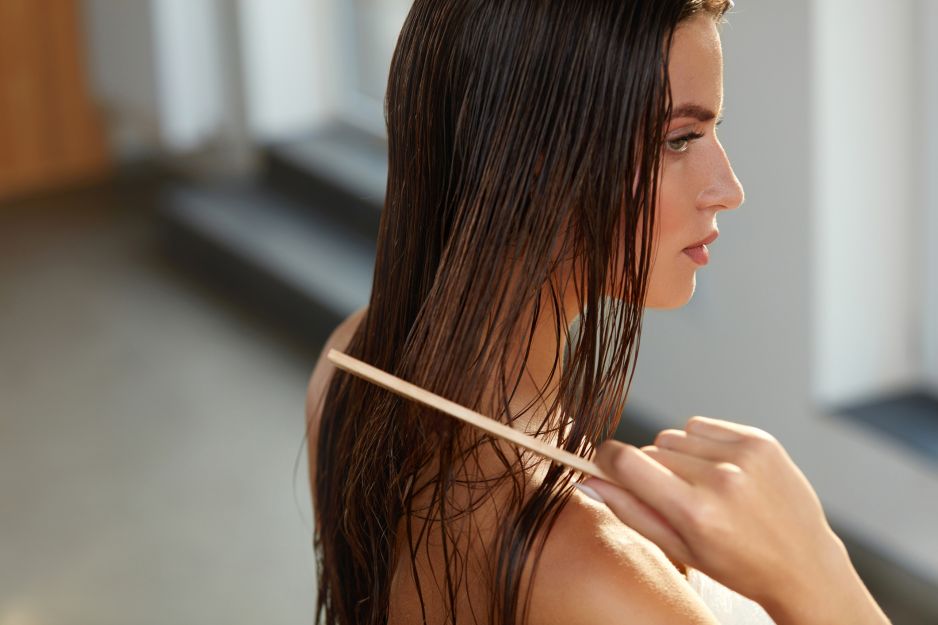Shampoos, masks and conditioners aren’t the only hair care products that I treat my hair with regularly. Recently I’ve bought a few scalp conditioners. If you also are thinking about giving them a try, find out which scalp conditioner to choose, what benefits they offer and how to apply them correctly.
What’s the point in using scalp conditioners?
Obviously, the most popular are scalp conditioners that promote hair growth. However, there are also products displaying other purposes like, for example, reinforce scalp and hair bulbs, increase blood circulation in scalp (to let hair receive a bigger portion of nutrients) and even help you relax. What are the benefits of using scalp conditioners? Well, hair becomes thicker and you can spot more baby hair growing. Moreover, such hair care products are able to extent the growth phase, which means that strands grow longer.
Which scalp conditioner to choose? Learn types of scalp conditioners
You can choose among the following scalp conditioners:
- Alcohol – for some people this type of scalp conditioner is both the strongest and the most effective. Alcohol is a potent solvent that allows nutrients to remain active for a long time. Moreover, owing to alcohol, scalp conditioner is warmed up which stimulates blood flow in scalp. I think I should also add that alcohol-based scalp conditioners often contain herbs, which effects are intensified by alcohol.
Who should reach for alcohol scalp conditioners? Basically, they are recommended to those people who have strong and thick scalp. On the other hand, alcohol-based scalp conditioners shouldn’t be used by those whose skin is sensitive, affected by psoriasis or dandruff. Such hair care product may cause dry hair and intensify the problem. - Alcohol-free – they are gentler but reportedly equally effective as scalp conditioners containing alcohol. However, in this case the base ingredient is water, herbal distillate or aloe juice. In most cases, the active substances are capsaicin or caffeine. Alcohol-free scalp conditioners are recommended to pretty everyone, excluding those people who experience serious difficulties with taking care of their hair and scalp.
- DIY scalp conditioners – they are herbal-based products. They serve people who value home and natural hair care.
- Oil-based scalp conditioners – in most cases they are herbal macerates. This type of hair scalps will produce positive effects in those people who find oils suitable. On the other hand, oil-based scalp conditioners won’t become beneficial for those who have problems with thinning hair or don’t have time to use them correctly. Basically, you can apply pure oils to your hair and scalp. Surely, the most effective ones – in terms of boosting hair growth – are mustard oil, fenugreek oil and castor oil.
How to apply scalp conditioners?
No matter if with alcohol or not, scalp conditioners might be applied either before or after hair washing. In most cases they are picked up with a dropper to release a few drops of the conditioner on scalp – divide the hair into strands first. Oil-based hair conditioners, alike the pure oils, are supposed to be rubbed into scalp before washing, or at bedtime.
How will you know that you apply a scalp conditioner correctly? You shall notice baby hair, the strands should grow faster and scalp is in a good condition. However, if you feel that the scalp might be irritated and if your hair is thinning, the scalp conditioner you’re using isn’t for you – it’s better for you stop using it for good.



